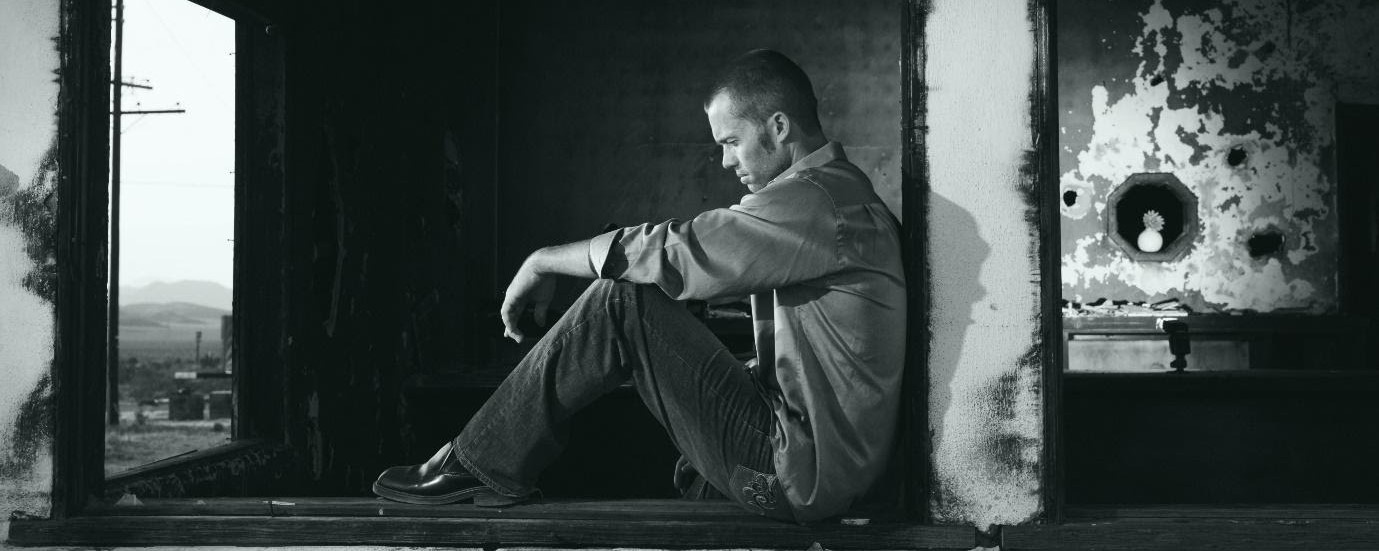Are you feeling uncertain about the level of emotional intimacy in your relationship? Are there any indications of emotional intimacy issues that you’re somehow missing? How can you tell if you and your partner have established genuine emotional intimacy? If so, how do you build on it?
Read on to find out whether you have managed to build an intimate connection with your partner and learn how to improve intimacy in a relationship and further enhance the closeness between you and your partner.
What Does It Mean To Be Emotionally Intimate With Someone?
First of all, relationships are not easy nor simple. Falling in love with someone may be spontaneous and come natural, but things in a relationship might not go as smoothly. It takes hard work to form a lasting, meaningful connection with someone, develop intimacy and build a relationship that has the potential to last a lifetime.
What Is Considered Intimacy?
Intimacy is manifested through emotional, mental and physical closeness between two people in a relationship. Passion and physical intimacy are certainly exciting. But it is emotional intimacy, closely intertwined with mental intimacy, that is an absolutely necessary part and the basis of a lasting relationship.
Having genuine emotional intimacy with a partner means that you have a relationship built on mutual understanding, support, love, and care. You are always there for each other, but you don’t pressure each other into opening up about things you’re uncomfortable with until you’re ready. Your relationship is built on patience, empathy, and kindness. As a couple, you are in-sync and ready to overcome any challenge you may be facing down the line.
They say couples who laugh together, stay together. Couples who stay together also tend to:

- Show affection physically,
- Express loving emotions verbally,
- Have intellectual discussions,
- Share experiences with each other.
What Are The Four Types Of Intimacy?
Intimacy comes in four main forms, all of which are important for building a healthy and long-lasting relationship. These are:
- Emotional intimacy: being emotionally intimate with someone means being able to share your deepest feelings, insecurities, and dreams without fearing judgment. You should feel valued and understood by your partner.
- Physical intimacy: while most people associate physical intimacy with sexual intercourse, it actually involves much more than that. It is about sensual expression and activity that brings you closer.
- Intellectual intimacy: discussing your viewpoints and beliefs with your partner without fear can help deepen intellectual or cognitive intimacy. Both of you should feel like your opinions and thoughts are valued in the relationship.
- Experiential intimacy: this form of intimacy is built by sharing experiences and activities with your partner. Whether it’s traveling together or enjoying a nice dinner at your favorite restaurant, shared experiences can deepen your bond immensely.
Can A Relationship Survive A Lack Of Intimacy?
Love and affection are basic human needs. Lacking intimacy in a relationship can bring about a wide range of problems for you and your partner, especially if you used to be closer or if one of you is more willing to work on building intimacy.
A relationship without intimacy can survive only if both partners are ready to put in some effort to create a deeper bond. If you both decide to work together to rebuild intimacy, then, yes, your relationship will most likely survive and may even transform into something entirely new and beautiful.
How Can I Improve My Partners Intimacy?
If you feel like your partner is no longer as intimate with you, don’t despair. There are numerous ways in which you can rebuild the connection between you two. Here’s how you can build intimacy in your marriage:
- Provide emotional support
- Share your thoughts
- Spend more time together
- Share exciting experiences
- Spend less time on your phone/computer
- Show appreciation with loving gestures
Signs Of Emotional Intimacy
There are several signs of emotional intimacy that you can easily recognize:
- You’re not trying to change each other: you accept your partner for who they are, and they reciprocate. If this lasts past the honeymoon phase, you can rest assured that the love you have for each other is unconditional, which is a sign of a healthy relationship in which both partners are free to be who they really are.
- You make each other better humans. You push each other to be better. It’s as if the purity of the love you have for each other is making you kinder.
- You are compatible with each other in the sense that matters most: the core principles and values you both uphold. If you share a similar life philosophy and moral standards and feel like you’re each other’s intellectual equals, you are on the same wavelength and you have a relationship that’s built to last.
- You communicate on a deep, meaningful level. You are always having conversations that revolve around expressing and sharing innermost feelings and emotions and it feels natural. Honesty and openness between partners are the cornerstones of a healthy relationship.
- You are still the same independent individuals as before. Unlike two people in a codependent relationship, you two are in love with each other independently and perfectly comfortable being apart. By being careful not to suffocate each other, you’re giving yourselves the space to breathe and a chance at a happily ever after.
Can A Relationship Coach Help Me Build Emotional Intimacy?
If you have decided to work on your emotional intimacy issues, speaking with a relationship coach would be the best course of action. Here’s how an intimacy coach can help:
- They will encourage you to share positive feelings with your partner. This may include telling your partner you love them more frequently, or simply showing appreciation for the actions that your partner does. No matter what exact words you use, sharing these positive feelings will help deepen the bond between you and your partner.
- An intimacy coach will teach you to speak about your fears. If you want to deepen intimacy with your partner, they should be allowed to see the parts of you that you deem unacceptable or shameful. By showing these aspects of yourself and sitting with your vulnerability, you will find it much easier to feel relaxed and accepted.
- They will teach you how to accept and acknowledge your shortcomings. In order to create closer bonds with people, you will have to learn how not to be defensive about the parts of you that may be seen as weaknesses. An intimacy coach will encourage you to admit your faults and help you be more direct and honest when sharing with others.
How To Build Emotional Intimacy With A Partner?
Spicing things up in the bedroom is relationship 101. But working on building emotional intimacy with someone takes a more subtle approach. Now gorging on spicy baby back ribs while watching a Conan McGreggor fight may not be your ideal way to spend date night, but if your partner’s into it, rest assured it’s one way to spice things up at a deeper level.
Remember that it’s the little things that count. You’re showing that you care enough for your partner to listen and remember the things they like and care about.
Both you and your partner should make a conscious effort to do the following:
- Take part in meaningful, connection-deepening activities together.
- Discuss issues that you disagree on to boost empathy and understanding.
- Boost intimacy with meaningful gestures that will make your partner happy.
- Compliment each other and remind each other of all the things you love and appreciate about each other.
- Work on yourself individually and your relationship will thrive.
- Don’t be afraid to be vulnerable: avoidance is the archenemy of intimacy.
- Create an atmosphere of emotional safety.
7 Ways To Build Intimacy In Your Relationship
Both you and your partner should make a conscious effort to do the following:
1. Share experiences
Take part in meaningful, connection-deepening activities with your partner. Trying something new can bring you closer together and help you create new memories that you will cherish for years to come.
2. Don’t fear conflict
Discuss issues that you disagree on to boost empathy and understanding instead of avoiding all forms of conflict. Both you and your partner should strive to create healthy boundaries and feel free to talk about your concerns and fears.
3. Express yourself
Boost intimacy with meaningful gestures that will make your partner happy. Showing your love and appreciation without fear will make your partner feel safe and loved, as well as deepen your connection.
4. Give compliments
As time goes by, many couples stop giving compliments to each other because they feel like everything has been said. Make sure to remind your partner of all the things you love and appreciate about them.
5. Love yourself
Work on yourself individually and your relationship will thrive. Self-care can come in many forms, whether it’s taking up a new hobby, achieving career goals, or simply finding more time to spend with your friends.
6. Be vulnerable
Don’t be afraid to be vulnerable. In fact, avoidance is the archenemy of intimacy. Guarding your feelings will only distance you from your partner instead of bringing you closer together. Make sure to speak up about your fears and insecurities.
7. Provide support
Let your partner know that they can rely on you for love and support. Create an atmosphere of emotional safety and try to be a good listener. If your partner feels cared for, they will surely reciprocate.
Restoring And Improving Emotional Intimacy
Building emotional intimacy with a partner requires ongoing work from both partners. Trying to rebuild and restore emotional intimacy takes even more hard work, patience and dedication. Whether you’re attempting to save a relationship that lost its spark or start a healing process after a critical period, difficult times may lie ahead. But to quote Elvis Presley: Let’s not let a good thing die.
So what can you do to restore and improve emotional intimacy?
- Focus on your personal growth,
- Improve your communication and practise active listening,
- Spend quality time with your significant other,
- Romance isn’t dead: even the smallest romantic gestures can go a long way in helping you rebuild intimacy.
How To Build Emotional Intimacy In A New Relationship?
Maybe your partner is just having a bad day, but you’ve already started seeing red flags and having terrifying visions of the worst-case scenario where you have drifted apart and damaged your relationship beyond repair.
Sometimes when you’re in a new relationship, things can get really awkward really fast. We’ve all been there. The ebb and flow of relationships is frightening, especially if you’re just starting to get emotionally intimate with someone. You may start to feel that you’re growing distant from your partner. On the other hand, you’re afraid to address the topic because you don’t want to put a strain on your partner or come off as overbearing or paranoid.
But instead of fearing what the future may bring, be proactive. Just because you’re in a new relationship doesn’t mean you have to walk on eggshells. In fact, if you want to make a relationship work, you have to have an honest approach from day one and feel free to express any concerns, fears or suspicions you may have. This is as important as taking affirmative action and expressing the love and appreciation you have for each other.
Emotional Intimacy Does Not Equal Perfect Harmony
As with any relationship, conflicts are inevitable, especially once partners in a budding relationship have taken off their rose-colored glasses. But partners who want to make their relationship work and who are putting their time and energy into building emotional intimacy may avoid getting into conflict with each other for the first time for fear of losing their partner.
Surprisingly enough, conflicts in a relationship can prove useful: they can help clear the air and help you and your partner reach a higher level of mutual understanding and intimacy.
Learn How To Improve Intimacy In A Relationship At PIVOT

Here at PIVOT, we are all about helping you grow as a person and providing you with the support and guidance you need to form relationships that will last. Whether you decide to attend emotional intimacy coaching sessions by yourself or together with your partner, our PIVOT Advocates are here to promote your personal growth.
You may also benefit greatly from a retreat or building intimacy in a marriage workshop at The Glass House. Consult PIVOT Advocates to get a comprehensive overview of the PIVOT process and all that it has to offer. Contact us today!




















